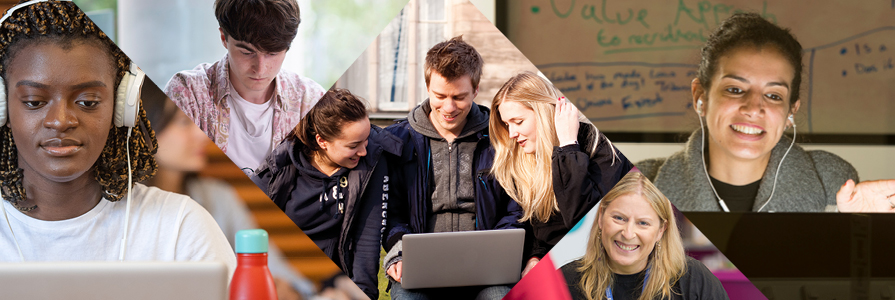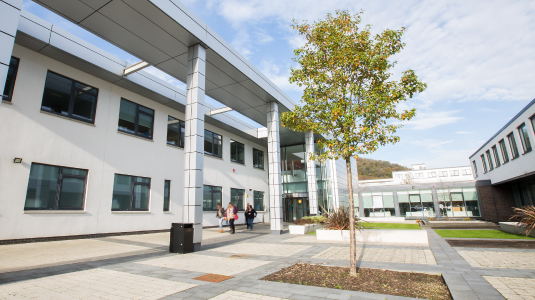SFC news published since 2018. See SFC archived content for earlier news articles.
How do you provide students with work placements during a pandemic? Creativity, collaboration and a can-do attitude was the answer at Borders College.


Foundation Apprentices (FAs) were one of the student groups hardest hit by the pandemic. Not only did they miss out on the college experience but work placements were also restricted. For our Health and Social Care and Childcare students the lack of real work experience was particularly difficult, and we decided during the first lockdown that we would do everything we could to facilitate some meaningful placements for them.
Pre-pandemic we offered a traditional approach to FAs with students attending classroom sessions and weekly work placements. Lockdown changed all that, and as restrictions went on it became increasingly apparent that face to face placements would be difficult and we needed to develop some interim, virtual placements to enable our students to progress with their awards.
Although we had prepared the work for the customised units we felt it was really important to try and support the students to have experiences as close to normal as possible and this meant arranging placements that would start online but could move face to face as soon as restrictions allowed.
We approached organisations which we knew would be willing to enter into conversations with us about placements and who could help develop some creative solutions. The response of organisations to our initial enquiries was overwhelmingly positive and they were very willing to work with us to try and provide suitable placements.
We quickly established a team to develop our ideas and support the students. Consisting of the service providers, college assessors, schools and parents this team collaborated, shared ideas, raised concerns and worked hard to provide the students with the placements they needed. The input of parents was paramount for the childcare students – placements with young children were only possible with the support of their parents who needed to set up the technology and maintain discipline while the students carried out planned activities.
When you do anything like this for the first time it is nerve-wracking but our students were tremendous – they were so positive and enthusiastic and keen just to try things; and that made a massive difference. They created craft workshops, online cooking and baking, show and tell and Simon Says and delivered sessions on Scottish culture providing a really varied timetable of activities for service users. As soon as face to face meeting were possible they carried out social and other outdoor activities in the snow.
We wanted the students to have well rounded experience and not miss out on any of the usual classroom activities either. We arranged some virtual input around the ethos behind forest schools and what forest schools hope to achieve. Students also completed sessions around continuous professional development, healthy living, play, legislation, communication, health and safety, safeguarding and rights as well as interactive sessions including a scavenger hunt and making play-doh dinosaurs.
The relationships between student, learning provider and employer were crucial in identifying issues early and resolving these before they became insurmountable problems.
Students learned to manage their time effectively and gained valuable meta-skills as part of their placements as they needed to prepare carefully for each session and consider their online presence, becoming more socially aware, resilient and adaptable.
Overall, we felt that we achieved successful virtual placements for FAs which led to face to face placements when safe to do so; completion of awards in Social Services and Health Care and Social Services Children and Young People, as well as stronger relationships with stakeholders and confidence that virtual placements were possible.
It is important to note that we were dealing with very small groups of students – implementation might be difficult for larger groups. In rural locations good internet connections are essential and we did need to do some work to ensure that students had access to the internet and appropriate devices to carry out placements.
At present we are keen to ensure students have full face to face placements. However, we know now that this model can work very successfully and that we can adapt quickly to new challenges. For students who may be unable to attend regular physical placement, a virtual placement can provide the necessary learning and real work experience to evidence a vocational qualification when used in conjunction with more traditional work experience.

